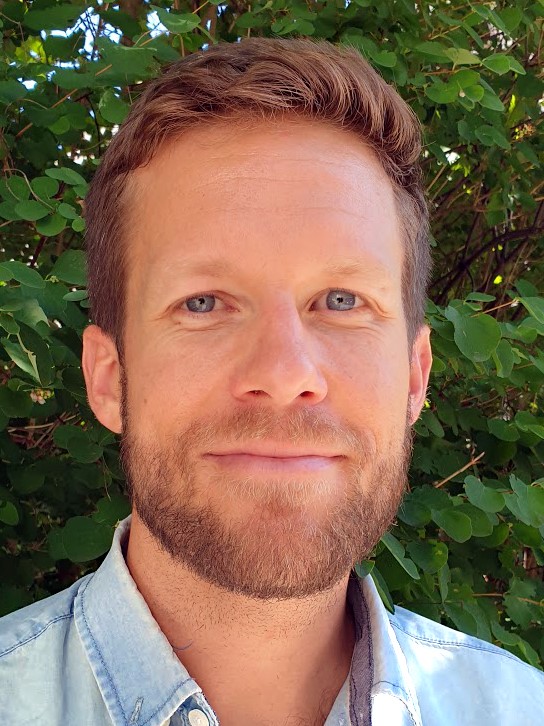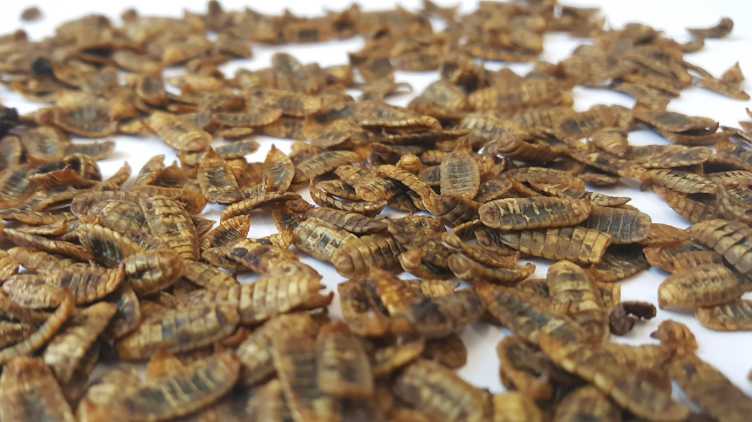E4D Fellow: Moritz Gold
Insect production from biowastes for animal feeds

Project duration: 2017 - 2020
Supervisor at ETH Zurich: Prof. Dr. Alexander Mathys (Chair Sustainable Food Processing Laboratory)
Collaborators:
Dr. Andreas Baumann, Bühler Insect Technology, Switzerland
Urs Fanger, Entomos AG, Switzerland
Michelle Grant, World Food System Center, ETH Zurich, Switzerland
Matthias Grawehr, Essento Food AG, Switzerland
Matthew Hayden, The Recycler, Tansania
Tim Egan, Sanergy, Kenya
Dr. Elsje Pieterse, Stellenbosch University, South Africa
Dr. Christoph Sandrock, FiBL, Switzerland
Prof. Dr. Jeff Tomberlin, Texas A&M, USA
Dr. Eric Schmitt, Protix, The Netherlands
Prof. Dr. Jibin Zhang, Huazhong Agricultural University, China
Dr. Christian Zurbrügg and Dr. Stefan Diener, Eawag, Switzerland
Partner Institutions:
external pageBühler Solutions AGcall_made
external pageEntomos AG Solutionscall_made
external pageEssento Food AGcall_made
external pageHuazhong Agricultural Universitycall_made
external pageResearch Institute of Organic Agriculture (FiBL)call_made
external pageStellenbosch Universitycall_made
external pageSwiss Federal Institute of Aquatic Science and Technology (Eawag)call_made
external pageTexas A&M, USAcall_made
Articles published on the project
Gold, M., Binggeli, M., Kurt, F., De Wouters, T., Reichlin, M., Zurbrügg, C., Mathys, A., Kreuzer (2020). external pageNovel Experimental Methods for the Investigation of Hermetia illucens (Diptera: Stratiomyidae) Larvaecall_made. Journal of Insect Science, 20 (3). Open access, available external pageherecall_made.
Gold, M., Egger, J., Scheidegger, A., Zurbrügg, C., Bruno, D., Bonelli, M., Tettamanti, G., Casartelli, M., Schmitt, E., Kerkaert, B., De Smet, J., Van Campenhout, L., Mathys, A. (2020). external pageEstimating black soldier fly larvae biowaste conversion performance by simulation of midgut digestioncall_made. Waste Management, 112, 40–51. Open access, available external pageherecall_made.
Moritz Gold et al. (2020): external pageEstimating black soldier fly larvae biowaste conversion performance by simulation of midgut digestioncall_made Waste Management 112 (2020) 40-51.
Moritz Gold et al. (2020): external pageBiowaste treatment with black soldier fly larvae: Increasing performance through the formulation of biowastes based on protein and carbohydratescall_made Waste Management 102 (2020) 319-329.
ETH Zurich News, 23 September 2019: Turning hype into real alternatives
NewScientist, 17 July 2019: external pageThe super fly that could feed us, end waste and make plastic and fuelcall_made
Forbes, 14 June 2019: external pageCan Using Insects As Animal Feed Reduce The Climate Impact Of Meat Production?call_made
Sergiy Smetana et al. (2019): external pageSustainable use of Hermetia illucens insect biomass for feed and food: Attributional and consequential life cycle assessment.call_made Resources, Conservation and Recycling 144 (2019) 285-296.
Abdul Aziz Somroo et al. (2019): external pageInfluence of Lactobacillus buchneri on soybean curd residue co-conversion by black soldier fly larvae (Hermetia illucens) for food and feedstock production.call_made Waste Management 86 (2019) 114-122.
Moritz Gold et al. (2018): Decomposition of biowaste macronutrients, microbes, and chemicals in black soldier fly larval treatment: A review. Waste Management 82 (2018) 302–318.
NZZ am Sonntag (German), 24 June 2018: Warum Kühe Insekten fressen sollten.
NZZ am Sonntag (German), 24 June 2018: external pageInsekten im Futtertrogcall_made
ETH Zurich News, 14 April 2018: How to profit from biowaste
Tagesanzeiger (German), 12 March 2018: external pageAlgen fürs Allcall_made
Moritz Gold et al. (2018): Decomposition of biowaste macronutrients, microbes, and chemicals in black soldier fly larval treatment: A review. Waste Management 82 (2018) 302–318.
Television
Project description

The vast majority of population growth in the coming decades is expected in urban areas of low- and middle-income countries. Such urbanization and population growth is expected to go along with increases in income levels and food consumption. As a result, feeding the world is expected to require a 50% increase in protein production. Insects, such as the black soldier fly, Hermetia illucens (Diptera: Stratiomyidae), have been considered as one solution to close this protein gap due to their low environmental impact (e.g. water, land). However, the relative sustainability of insects compared to other protein sources such as fishmeal strongly depends on the substrate used for insect cultivation.
Urban biowastes such as municipal organic solid waste or faecal sludge that are currently often poorly managed and thereby contribute to poor public and environmental health outcomes may be feedstocks that have the highest sustainability for insect cultivation. They are abundant and generally suitable for insect larvae production but have a variable performance and likely carry risks for feed and food safety. This prohibits the industrial-scale cultivation of larvae on these feedstocks. Uptake of these biowastes for insect cultivation could contribute to increased urban public and environmental health.
The variable performance of municipal organic solid waste or faecal sludge in black soldier fly processing is likely linked to the feedstock nutrient composition and microbiology. The PhD project aims to increase the performance of insect cultivation by identifying suitable formulations of different biowastes and by the assessment of beneficial microorganisms. As these biowastes also carry various risks for feed and food safety, the doctoral project is also expected to identify red flags of risks for food and feed safety and will recommend procedures for safe product development. Thereby, the doctoral research is expected to contribute to sustainable biowaste management and food production.
